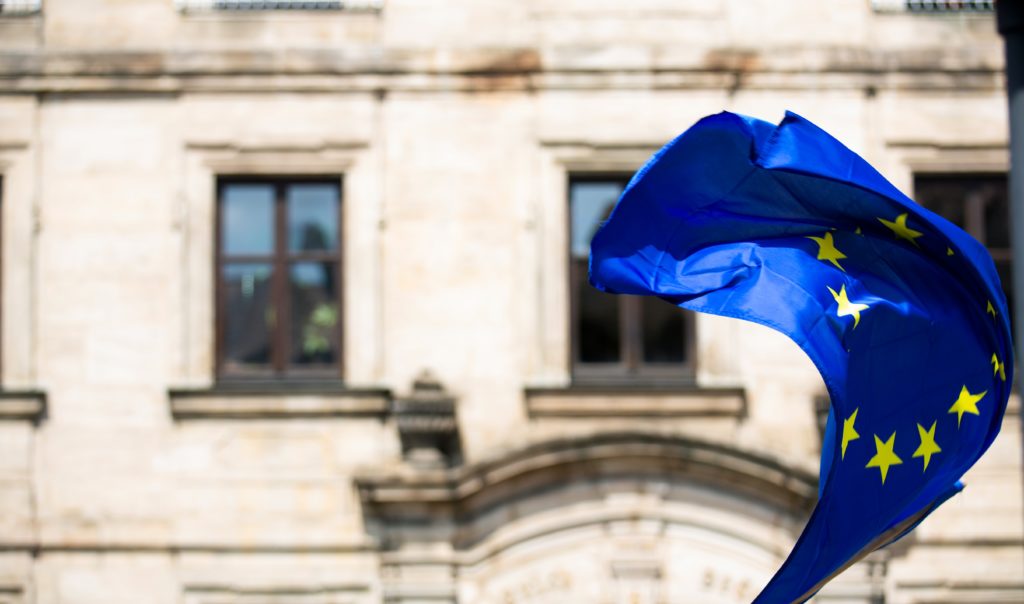writes Manfredi Morello (MA International Security 2018). Manfredi Morello is a Solicited Rating Team Coordinator at Standard Ethics.
*The views in the following article are the personal views of the author and are not an official position of the School.*
The invasion of Ukraine by Russia has led the EU to act in a coherent and united way. The European Defence’s joint procurement capability consortium (EDCC), and the Energy Policy’s renewed Plan (RePowerEU), have become the hallmarks of Von der Leyen’s commission ending mandate. United member states have shown their effectiveness, despite the current decision-making process narrowing the EU’s room for maneuvre.
2022 marks the Conference on the Future of Europe, and all the suspended policies are on the verge of being transformed. The war in Ukraine, however, has urged member states to relaunch two specific policy areas: Energy and Defence.

Despite the tragic outcome of the war at the eastern borders of Europe, Europeans have been acting cohesively, underlining the importance of standing firmly together. Firstly, we saw how rapidly member states came together to put sanctions in place. Then, we observed a swift policy-change concerning energy, perhaps the most ambitious plan since the European Coal and Steel Community: RePowerEU. A plan seeing member states pooling energy resources in order to give a firm response to Russia’s oil and gas retaliation. The plan will preserve the Commission’s priorities towards carbon-neutrality, progressively reshaping the EU’s dependence from Russia’s commodities. But, most importantly, member states will pool their resources to achieve this. A lesson from the past, for a better tomorrow. This perfectly fits with the planned Conference on the Future of Europe’s federalist current.
It should be considered that international organisations will undoubtedly put pressure on EU member states’ defence capabilities, in three ways, in the next quarter: Firstly, the EU is about to issue a general purpose bond framework to sustain the armaments’ supply chain towards Ukraine. This debt issuance programme must be seen as if the EU were to issue peacekeeping bonds for defence and aerospace companies, whose controlling shareholders are mostly in member states (e.g. Leonardo and Fincantieri in Italy, Thales and Airbus in France). Furthermore, European NATO allies will push the percentage of GDP defence spending from the current amount to NATO’s requested target (i.e. 2% of GDP). Finally, the EU is going to launch a public procurement ecosystem to pool member states’ armament capabilities: the European Defence Capability Consortium (EDCC). The premise must be: “Invest together, better and in Europe” – as recently highlighted by Commissioner Thierry Breton. All these elements put together, are likely to boost the European Security and Defence Policy. The EU’s budget is allocating 500 million euros for the next two years to the EDCC, through which member states will jointly procure their armament programmes.
Although a joint defence effort is required by the EU, the main European aerospace and defence companies will be under monitoring, due to public and institutional debates on ethical grounds.
Independent sustainability ratings agency Standard Ethics, recently expressed its opinion on the sustainability outlook of the Aerospace and Defence industry. Defence companies have been on the Agency’s radar. On the one hand, the Agency invited the market to reflect on how these companies could align with international sustainability standards, as they will inevitably make more and more profit in the upcoming years. Standard Ethics has also invited the market to review SRI strategies such as sectorial exclusions, given the international organisations’ new agenda.
The past months have taught us a crucial lesson – that Energy and Defence will go hand-in-hand. At the outset of the Russian invasion in Ukraine, there was an overall confusion between Ethics and Sustainability. Now, we must be aware that ethical exclusions are no longer sustainable. The strategic choice the EU is making for future generations rests upon the single market capacity to finance these plans. Without a cohesive common security and defence policy, the EU will not find its belated space in the international order, and its growing demand for peace-keeping cannot be guaranteed. Without a single market for energy, future generations will struggle due to lack of light as well as heat and clean energy.
It is with the utmost confidence that we observe the recent policy developments concluding that Energy and Defence together are inclined to make the EU an independent super-power. They will fasten the EU to the transatlantic alliance, while formally distancing it from China at the same time. The sole obstacle on the road to a better outcome is the confirmation of a Qualified Majority Vote, for all the decision-making procedures inside the European Council. Until this obstacle has been overcome, we will keep on seeing how a single-member state can easily oppose the progress of a prosperous and ambitious Europe.


Leave a Reply